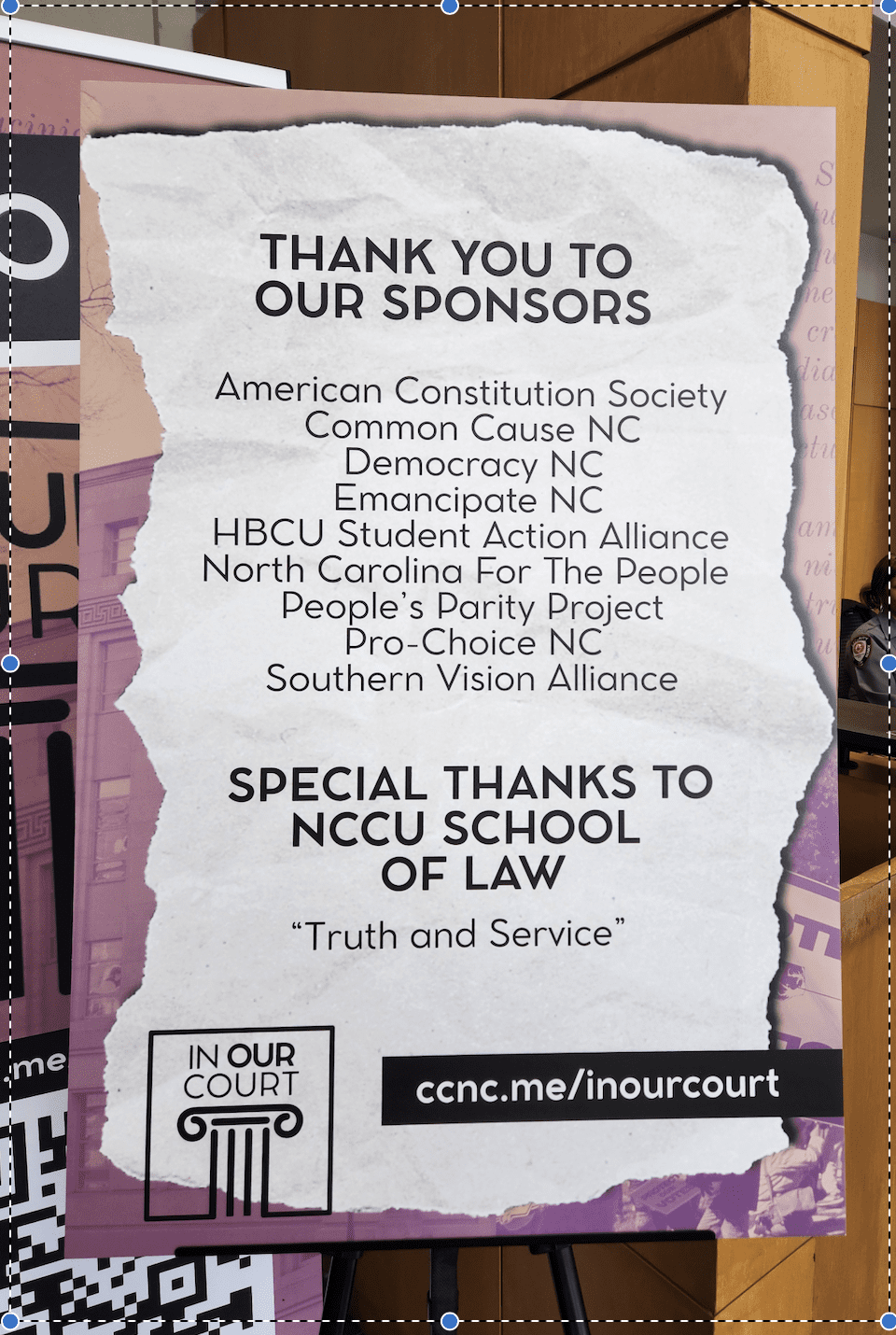Earlier this month Pro-Choice North Carolina joined democracy and voting rights partners - including Common Cause NC, Emancipate NC, Democracy NC, The People’s Parity Project, and North Carolinians for the People - to host a daylong workshop educating voters about our state courts and how we can take action to build a state judiciary system that works for the people of our state, rather than for narrow political interests. We started the day with Chapel Hill’s first poet laureate, CJ Suitt, using poetry to reflect on the state of our courts, and ended with an inspiring keynote address from current state Supreme Court Justice Alison Riggs on why she is fighting for the rights of all voters in her effort to stop her November 2024 opponent from overturning an election. In between, we heard from students, law professors, advocates, and attorneys on what a truly impartial, free, and fair judiciary could look like in North Carolina, what that would mean for our communities, and how we can achieve that vision.

Pro-Choice North Carolina has been focused on the importance of the state and federal judiciary for reproductive rights and healthcare access for nearly a decade. With the loss of federal protections for abortion access in the Dobbs v. Jackson Women’s Health Organization in 2022, the U.S. Supreme Court case that overturned Roe, a patient’s access to abortion now heavily depends on where they live. With numerous anti-abortion state legislatures quickly moving to ban or severely restrict access to abortion, the years since the Dobbs decision have seen many state courts stepping into the political fray, with mixed results.
While states with anti-abortion legislative majorities are now less restrained by federal oversight for their dangerous, overreaching, and extreme abortion bans, that does not mean they should necessarily expect a free pass from their state courts. Our courts are supposed to act as a check on legislative and executive overreach and many state constitutions, a guiding document for state courts, have more protections for people than are enumerated in the federal constitution. From Pennsylvania to Wyoming, we’ve seen state courts point to their constitutions to uphold abortion and reproductive rights. We’ve also seen examples of state courts that were completely politicized, like Florida, using their power to illegitimately restrict abortion access for the sole reason that there are now anti-abortion majorities on the court.

Pro-Choice North Carolina’s Executive Director joined the afternoon panel (photo above) to discuss how state courts can impact issues as diverse as reproductive rights, economic justice, and racial inequities. As panelists, we all agreed state judges are expected to take seriously their role as providing a check on legislative and executive power. As voters, we also need to take seriously our role in vetting who sits on our state courts, which we do in elections. While many people may turn out to vote in a high-profile election for the President or a Senator, too many voters stop filling out their ballots before they reach the state court races, often claiming they don’t know enough about the candidates or the importance of state judges. Our goal with our panel, and with the whole event, was to help voters understand why voting for state court judges matters.
In North Carolina we elect our judges, from the district courts to the state Supreme Court. These elections are just as important, and maybe even more directly impactful to our day-to-day lives, as voting for who sits in the White House. In recent state supreme court elections, races have been decided by 401 votes (2022) and 734 votes (2024). While judges function differently from other politicians, they are still political and we have a duty to learn more about the judges vying for our votes. Beyond their partisan labels, we can look to past rulings, endorsements, and campaign contributions to learn more about the judges on our ballot. We can contact their campaigns to ask questions and advocate for candidate town halls. And we can encourage every voter we know to join us in casting our vote for those jurists on our state benches.
Our inaugural “In Our Court” event was a great success, and we are looking forward to future events on campuses around the state. We hope to see you at one of these events soon!
